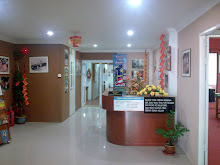THE economic outlook for Sarawak in 2008 is expected to remain favourable with an expected growth of between 5.5 per cent and 6 per cent amidst uncertainties in the global economy, said Second Finance Minister Dato Sri Wong Soon Koh.
While export growth is expected to moderate to 6.5 per cent, import growth is expected to remain strong at 15.6 per cent, Wong said in his winding up speech at DUN yesterday.
“Growth on the production side will continue to be driven by the services sector, supported by private consumption and tourism-related activities,” he said.
He said that for the first quarter of 2008, the services sector is expected to achieve a 5.1 per cent growth.
Wong, also Minister of Urban Development and Tourism, said the manufacturing sector was likely to stay strong with an estimated growth of 6 per cent this year while construction sector was expected to grow at 6.9 per cent.
“Growth in the agriculture sector is projected to stay strong as the production of crude palm oil is on an upward trend and registered a growth of 21.3 per cent in the first quarter of 2008,” Wong told the august house.
He said while Sarawak’s domestic economic fundamental is expected to remain favourable in 2008, the external factors that might affect its economic growth and that required close monitoring were severity and duration of US economic slowdown; impacts of subprime crisis and housing slowdown in the US on the global economy; price level of oil, building materials, commodities and food; terrorism threats; and economic growth in China and India.
Wong said the growth of the state’s economy increased by 0.3 per cent last year at 5.8 per cent from 5.5 per cent in 2006.
He said the agriculture sector grew at 11.7 per cent last year while construction sector grew at 6.4 per cent, manufacturing sector 5.8 per cent and services sector 6.8 per cent.
On inflation, the minister said the state is expected to record a higher inflation rate ranging from 2.5 per cent to 2.5 per cent this year compared to 1.7 per cent in 2007.
“Like in other states and countries, inflation is likely to be influenced by the rising prices of global commodities,” said Wong, adding that the rise in global prices of food commodities was also expected to be passed on to the domestic food prices, which leads to higher inflation in the food and non-alcoholic beverages category.
Wong said the government has initiated measures to curb inflation and help the people to cope with the rising cost of basic necessities.
Some of these measures are to continue subsidising fuel prices, offer various financial rebates and reduce rates of personal income tax and set up a special cabinet committee on price increase.
“The Ministry of Domestic Trade and Consumer Affairs has also strengthened its enforcement capacity to monitor prices and further contain the price hikes of controlled items by unscrupulous and errant traders and wholesalers,” he added.
Wong said the people must be pragmatic to realise that they needed to adjust their household spending and lifestyles to lessen the effects of rising prices.
At the same time, he felt that the state’s businessmen and industrialists must be more creative and innovative, more efficient and productive to be able to remain competitive in this globalised world.
Wednesday, May 14, 2008
Subscribe to:
Post Comments (Atom)



.jpg)

No comments:
Post a Comment